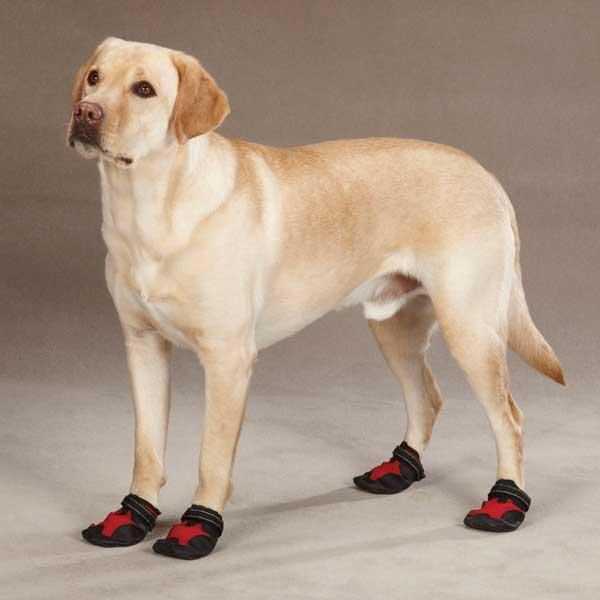With the abundance of snow and ice that we are experiencing this winter on the Cape, the use of deicing salts are in frequent need but pet owners should be aware of potential health hazards that these products pose to our pets. When these products are either ingested or licked from the animals paws, it could result in short term symptoms such as excessive salivation, nausea and vomiting. However, when consumed in large amounts, abnormalities in blood electrolytes may develop along with weakness, lethargy, irritation to the oral cavity and gastrointestinal tract. Tremors may also develop. Also, all chemical deicers have the potential of causing significant burning, cracks and irritation to the animals pads and paw region. If you notice any of these symptoms, you should seek veterinary care.
When deciding on which chemical deicer to use, you, as a pet owner, should first consider a "Pet friendly" product. "Safe Paw" can be found at many pet supply stores and online. This product contains crystalline amide and glycols and not salt. It's guaranteed safe for pets, children, paws, eyes, on asphalt, lawns, shrubs, wood floors and rugs. An 8 lb jug would cost in the $12 range. Other safe options would be sand, cat litter, or gravel, which are all inexpensive, non-irritating and easy to spread. All of these can provide adequate traction when applied to icy surfaces.
Those chemical deicers that should be avoided include those containing magnesium chloride. They can cause leaching of heavy metals from the soil bringing them to the surface and into the groundwater. Deicers that contain carbonyl diamida or urea should also be avoided. When used they release nitrates and when nitrates enter the water supply it nourishes algae, just like nitrogen fertilizers do, resulting in algae blooms that choke out other vegetation as well as fish and shellfish. Calcium magnesium acetate or CMA can be applied to certain trouble spots. It works slowly and only at mild temperatures. It is more effective than urea and lasts longer than most chloride salt. It doesn't corrode concrete and doesn't harm vegetation. However, it can temporarily deplete oxygen in small lakes but because it biodegrades it isn't especially mobile in soil and isn't a major threat to most groundwater.
In regards to the prevention of skin irritations, you can consider the following:
"Mushers Secret" used as a paw wax is extremely popular. This product will form a protective barrier between the paw and salty surfaces. It does wear away after extended exercise and should be re-applied before each walk. The use of "Sled Dog Boots" that are polar fleece with rubber vinyl bottoms and mold to the paws, can be tried as well. Carefully clipping the fur between the toes and interpad region to prevent the formation of "ice balls" that will in turn result in salt formation and subsequent irritation should be attempted. Also applying warm water soaks to each paw after going outdoors is always a worthwhile endeavor.
We hope you get out there with your pets and enjoy the wintery conditions we are currently experiencing. But always keep in mind the potential dangers that may occur to our "furry friends" when it comes to the indiscriminate use of various deicers that are commonly used today.
Dr Family, Jan 2014, Not all deicers are created equal
posted: Nov. 12, 2015.
